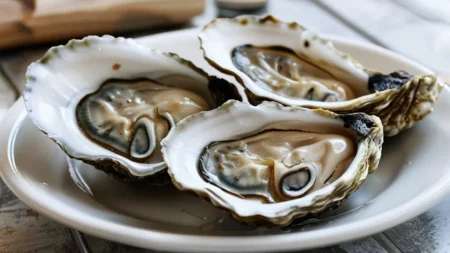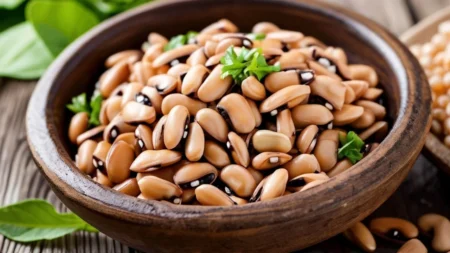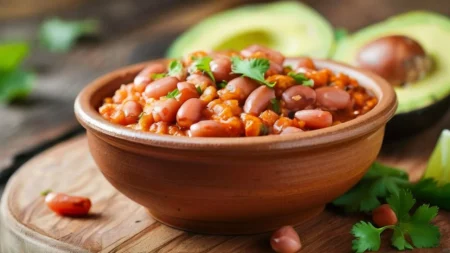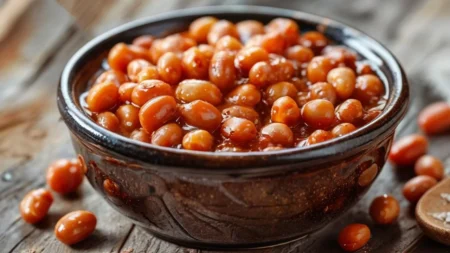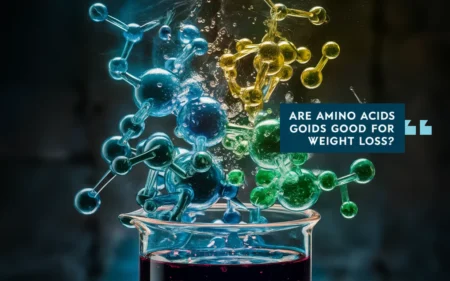Is Gatorade Good for Weight Loss?
Key Takeaways
- Gatorade is designed to replenish electrolytes lost during intense exercise but may not be suitable for general weight loss due to its sugar content.
- It can be beneficial for athletes or during extended physical activities, but frequent consumption without exercise can lead to excess calorie intake.
- Low-calorie or zero-sugar options may be more appropriate for those on a weight loss journey.
- Maintaining hydration with water or lower-calorie alternatives is often better for casual dieters or those not engaged in prolonged exercise.
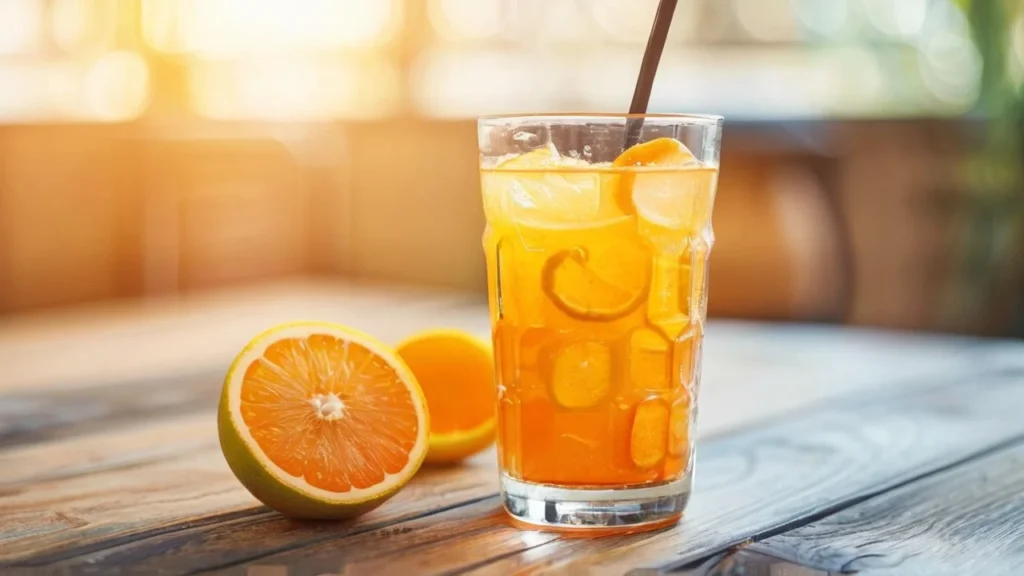
What is Gatorade?
Gatorade is a popular sports drink that was originally developed to help athletes stay hydrated and replenish electrolytes, such as sodium and potassium, lost through sweat during intense exercise. It is often used to prevent dehydration during sports, extended workouts, or physical exertion in hot climates.
Available in a variety of flavors and formulas, Gatorade contains key electrolytes, sugar, and water. It’s marketed toward athletes and fitness enthusiasts, but many people also consume it as a hydration aid during daily activities.
Nutritional Value of Gatorade
Here’s a breakdown of the nutritional content of a 12-ounce serving of the classic Gatorade Thirst Quencher:
| Nutrient | Gatorade (Original) | Gatorade Zero |
|---|---|---|
| Calories | 80 | 0 |
| Sugar | 21 grams | 0 grams |
| Sodium | 270 mg | 270 mg |
| Potassium | 75 mg | 75 mg |
| Carbohydrates | 22 grams | 1 gram |
As seen in the table, the original Gatorade contains a considerable amount of sugar, which can be counterproductive for those trying to lose weight, especially if consumed without the accompanying physical exertion. Gatorade Zero, on the other hand, offers an alternative with zero calories and no sugar, making it a better option for those who want to avoid extra calories while staying hydrated.
Benefits of Gatorade for Weight Loss
1. Replenishing Electrolytes During Exercise
For individuals engaging in high-intensity exercise or prolonged physical activity, Gatorade can be helpful in replacing electrolytes that are lost through sweat. Proper electrolyte balance is essential for muscle function and preventing dehydration, especially during exercise lasting longer than 60 minutes.
- Sodium and Potassium: Gatorade contains sodium and potassium, two critical electrolytes that help regulate fluid balance and support muscle contractions during workouts. Replacing these electrolytes can help maintain endurance and energy levels.
Scientific Insight: A study published in the Journal of Applied Physiology found that maintaining proper hydration and electrolyte balance can improve athletic performance and reduce the risk of muscle cramps and fatigue during prolonged exercise.
2. Prevents Dehydration
Hydration is key for any weight loss plan. While water is the best source of hydration for most people, Gatorade can help prevent dehydration during intense physical activity. Dehydration can cause fatigue, reduce metabolism, and increase hunger, which could lead to overeating. Gatorade’s balance of water and electrolytes can ensure proper hydration during long workouts.
3. Boosting Performance for Better Calorie Burn
By keeping the body hydrated and replenished, Gatorade can help individuals maintain performance during exercise. This means you can work out longer or harder, burning more calories and contributing to weight loss.
Calorie Burn and Exercise
The more intense and longer your workout, the more calories you burn. For example, running for an hour can burn approximately 600–800 calories, depending on intensity and body weight. By using Gatorade to stay hydrated and energized, you can extend your workouts and potentially increase your calorie burn.
Drawbacks of Gatorade for Weight Loss
1. High Sugar Content in the Original Formula
One of the primary concerns with Gatorade in the context of weight loss is its sugar content. A 12-ounce bottle of regular Gatorade contains 21 grams of sugar, which is equivalent to about 5 teaspoons of sugar. Consuming sugary drinks regularly, without burning off those calories, can contribute to weight gain rather than weight loss.
Sugary Drinks and Weight Gain
Multiple studies have linked the consumption of sugar-sweetened beverages, like Gatorade, to weight gain. Excess sugar is converted into fat if not burned off through exercise. For casual dieters or those who aren’t engaging in prolonged, intense physical activity, drinking Gatorade could lead to excess calorie intake and hinder weight loss efforts.
2. Empty Calories
Since Gatorade doesn’t provide any essential vitamins or nutrients (beyond electrolytes), the calories from the drink are considered “empty calories.” This means they contribute to your daily calorie intake without providing substantial nutrition. If you’re trying to lose weight, it’s better to consume nutrient-dense foods that provide more value for the calories consumed.
3. Alternatives May Be Better for Non-Athletes
For people who are not athletes or who only engage in moderate physical activity, water or low-calorie electrolyte drinks may be better hydration choices. Gatorade Zero, for example, provides the same electrolyte benefits without the sugar and calories.
Gatorade vs. Water for Weight Loss
When it comes to hydration, water is always the best option for weight loss. It’s calorie-free, helps keep your body functioning optimally, and can even boost your metabolism. In contrast, Gatorade contains calories and sugar (unless you choose a sugar-free version), which can add up if consumed regularly without compensatory physical activity.
Here’s a comparison between water and Gatorade for weight loss:
| Drink | Calories | Sugar | Hydration |
|---|---|---|---|
| Water | 0 | 0 grams | Optimal |
| Gatorade | 80 per 12 oz | 21 grams | Good for exercise |
| Gatorade Zero | 0 | 0 grams | Good for exercise |
For individuals aiming to lose weight, sticking with water or Gatorade Zero is the best approach for staying hydrated without extra calories.
When Should You Drink Gatorade?
1. During Intense Workouts
Gatorade can be beneficial during long or high-intensity workouts, such as running, cycling, or playing sports for over an hour. The electrolytes in Gatorade help replenish what is lost in sweat, which is especially important in hot or humid conditions.
2. After Prolonged Physical Activity
If you’ve been exercising for over an hour or have completed an endurance event, such as a marathon or triathlon, Gatorade can help restore your body’s balance of fluids and electrolytes.
3. During Illness or Dehydration
In cases of illness or dehydration, Gatorade may help restore lost fluids and electrolytes. However, for everyday hydration needs and casual exercise, water is sufficient.
Conclusion
While Gatorade is effective at replenishing electrolytes and preventing dehydration during intense physical activity, it’s not the best choice for everyday hydration if you’re focused on weight loss. The original Gatorade contains significant amounts of sugar and calories that can hinder your progress unless consumed during prolonged exercise. For individuals engaged in shorter or less intense workouts, water or low-calorie alternatives like Gatorade Zero are better choices. Always prioritize water for staying hydrated, and use Gatorade strategically when it fits your workout routine.
FAQ
1. Is Gatorade better than water for weight loss?
No, water is a better choice for weight loss as it is calorie-free. Gatorade can be beneficial during intense workouts, but it contains sugar and calories that may hinder weight loss if consumed regularly.
2. Can I drink Gatorade every day while trying to lose weight?
It’s best to avoid drinking regular Gatorade daily if you’re trying to lose weight due to its sugar content. Opt for Gatorade Zero or stick to water to stay hydrated without added calories.
3. How does Gatorade help during exercise?
Gatorade helps replenish electrolytes like sodium and potassium lost through sweat during prolonged or intense physical activity. It also provides carbohydrates for energy, which can be useful for endurance sports.
4. Is Gatorade good for intermittent fasting?
Regular Gatorade contains calories and sugar, which may break a fast. If you’re intermittent fasting, stick to water or Gatorade Zero, which has no calories.
5. Does Gatorade hydrate better than water?
For short or moderate physical activity, water is sufficient for hydration. Gatorade may be more effective for hydration during intense, prolonged exercise due to its electrolyte content.






